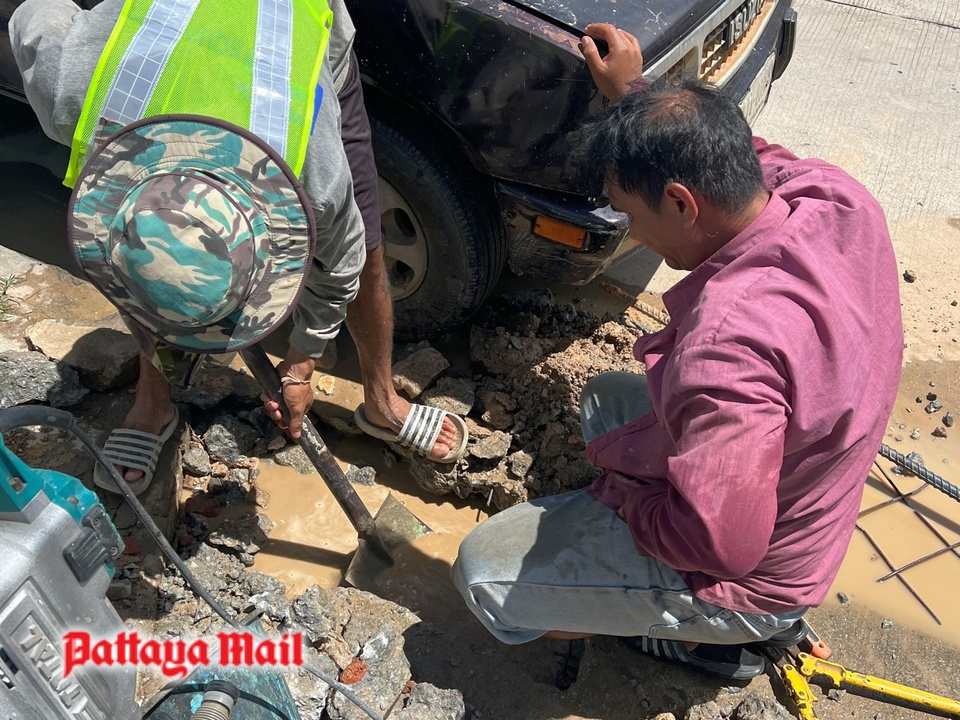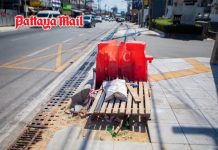
A random survey of 80 expats in Pattaya has praised some services offered by City Hall whilst expressing exasperation at others. The survey was conducted June 15-16 by interview or by phone to English-speaking longstayers, mostly with retirement extensions of stay or work permits. They were asked to list the best and worst aspects of life in Pattaya in 2023.
Top of the plus list was the City Hall 24-hour emergency and complaints number 1337 which over three quarters of respondents had either used or were well acquainted. “The call center has English speakers who can pass on messages to the water or electricity departments,” said one British responder, “including broken pipes, faulty meters and blown down cables.” Several respondents claimed to have successfully used the service to report street lamp failures, stolen cars left outside their house and even noisy neighbors (which led to the provision of a decibel machine to monitor the volume).
City Hall aside, the other positive features of life in Pattaya commonly listed were the excellent choice of restaurants and eateries, accessibility of many golf courses, night life variety and cheapness relative to the cost of living in Bangkok or Phuket. Over a third mentioned the Pattaya City Expats Club as being a useful source of information, particularly as regards health and immigration-related matters, as well as a social gathering ground for like-minded people. Two thirds of respondents said Pattaya was still their first choice even though the city has changed enormously over the past 20 years. “Yes it’s a concrete jungle now”, said one, “but you can easily escape it in the suburbs or on the so-called Dark Side.”
On the negative front, City Hall was again center-stage. Almost all respondents criticized the long delays in finishing the road works, especially on Second Road and Soi Threppasit, with a flurry of excuses coming from City Hall and promises which were not kept. City Hall awards the contracts but does not actually hire the workers, Thai or foreign. Traffic jams were a preoccupation of over half the respondents. Further complaints included too many pageants and festivals which made traffic matters worse and use of tour buses on minor roads. So-called improvements such as the center-road concrete humps on Threppasit Road to prevent motorbikes and cars turning right also came under fire as likely to cause accidents (they already have).
Again, City Hall aside, the downsides of contemporary life in Pattaya included the high cost of medical attention in the private sector, lack of health insurance especially amongst the over 70s, and fears that home countries in Europe had made it more difficult for expats to be treated there. Linked to health worries, two thirds of respondents were concerned about possible immigration changes to make medical cover compulsory. Already, three million baht in cover (or an equivalent sum in available cash) is a technical requirement for O/A retirement extensions and the new 10-year Long Term Resident visa. Indeed, variations in immigration procedures from office to office, and even within offices, were a constant refrain. “It feels like plant bargaining,” said one feisty retiree.





